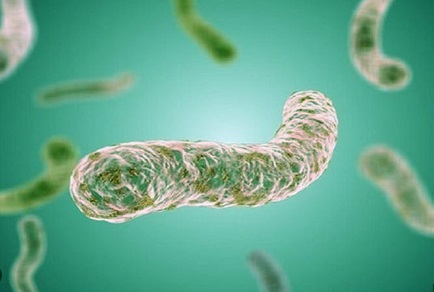Nikhil Prasad Fact checked by:Thailand Medical News Aug 14, 2024 1 year, 6 months, 1 week, 3 days, 15 hours, 29 minutes ago
Medical News: Taiwan Battles Melioidosis Outbreak After Typhoon Gaemi
Taiwan is currently grappling with a severe outbreak of melioidosis, an infectious disease caused by the bacterium Burkholderia pseudomallei, following the aftermath of Typhoon Gaemi. The Taiwanese Centers for Disease Control (CDC) has reported 19 local cases within the past week, tragically resulting in three deaths. The outbreak has raised concerns due to the high number of cases and the vulnerability of certain populations, especially those with chronic illnesses.
 Melioidosis outbreak in Taiwan infects 19 and kills 3
The Impact of Typhoon Gaemi on the Outbreak
Melioidosis outbreak in Taiwan infects 19 and kills 3
The Impact of Typhoon Gaemi on the Outbreak
The outbreak, which began after Typhoon Gaemi struck Taiwan in late July, has been particularly severe. The CDC attributes the surge in cases to environmental disruptions caused by the typhoon. Burkholderia pseudomallei, the bacterium responsible for melioidosis, typically resides in soil and water. However, during and after typhoons, the bacteria can be flushed out of the soil or dispersed in the air, increasing the risk of infection through contact with contaminated soil, water, or inhaling contaminated dust and droplets.
CDC Deputy Director-General Lo Yi-chun noted that melioidosis outbreaks often peak two to four weeks following a typhoon, and the current surge in cases is believed to have reached its peak. The next few weeks will be crucial in determining the trajectory of the outbreak, with health authorities closely monitoring the situation.
Details of the Affected Patients
The three fatalities reported were all individuals with chronic health conditions. The deceased included two women, aged in their 50s and 80s, and a man in his 60s. All three succumbed to complications such as pneumonia and septic shock within 15 days of developing symptoms. Their deaths underscore the severity of melioidosis in individuals with pre-existing health issues.
Of the 19 reported cases, 14 remain hospitalized, with two patients in intensive care. The ages of the infected individuals range from their 30s to 80s, with ten of them having a history of chronic illness. The majority of the cases, 14 in total, were reported in Kaohsiung, with three in Tainan and two in Chiayi County.
Understanding Melioidosis and Its Risks
Melioidosis is a serious infectious disease that can lead to a wide range of symptoms, including fever, headache, and chest pain. While some individuals infected with Burkholderia pseudomallei may remain asymptomatic, others can develop severe complications, particularly those with weakened immune systems.
The bacteria can enter the body through open wounds or by inhaling contaminated air, making post-typhoon conditions particularly hazardous.
Patients with chronic illnesses, such as diabetes, cancer, or those undergoing dialysis, are especially susceptible to severe complications from melioidosis. These complications can include pneumonia, encephalitis, and sepsis, all of which require prompt medical intervention. The CDC has urged individuals with chronic conditions who experience symptoms such as fever, chest pain, or coughing to seek medical attention immediately du
ring this peak period.
Continued Vigilance as Outbreak Persists
Despite the belief that the outbreak may have peaked, the CDC remains cautious. Deputy Director-General Lo Yi-chun told local
Medical News journalists that while new cases may continue to emerge in the coming week, the situation should improve by the end of August. However, he emphasized the need for continued vigilance, particularly for those at higher risk of severe illness.
COVID-19 Cases In Taiwan
The Taiwanese CDC has also been monitoring the ongoing COVID-19 situation in Taiwan. Between July 30 and August 5, 446 new domestic COVID-19 cases with severe complications were recorded, with the number of deaths increasing to 104. Although the number of COVID-19 cases has been on a downward trend for four consecutive weeks, the Taiwanese CDC remains on alert, noting that the disease is still in an epidemic phase.
Public Health Advisory: Precautions and Preventive Measures
In light of the ongoing melioidosis outbreak and the lingering threat of COVID-19, the CDC has issued several public health advisories. Individuals, particularly those with chronic illnesses, are advised to avoid contact with potentially contaminated soil and water, especially in areas affected by the typhoon. Wearing protective clothing and footwear, as well as practicing good hygiene, can reduce the risk of infection.
Additionally, the Taiwanese CDC has recommended that people with chronic conditions be vigilant for any symptoms of melioidosis and seek immediate medical attention if they suspect they may have been infected. Early diagnosis and treatment with antibiotics are crucial in managing the disease and preventing severe complications.
As for COVID-19, the CDC advises the public to continue following preventive measures such as vaccination, wearing masks, and practicing social distancing, especially when traveling to regions where the virus is still prevalent.
Conclusion
The melioidosis outbreak in Taiwan serves as a stark reminder of the unpredictable health challenges that can arise in the wake of natural disasters. With 19 confirmed cases and three deaths, the situation is a cause for concern, particularly for vulnerable populations. As health authorities work to contain the outbreak, public awareness and adherence to preventive measures will be key in mitigating the impact of this disease. In addition, the ongoing monitoring of COVID-19 highlights the importance of sustained public health efforts to combat multiple infectious threats.
For more on the Melioidosis outbreak in Taiwan, keep on logging to Thailand
Medical News.
Read Also:
https://www.thailandmedical.news/news/thailand-medical-authorities-issue-urgent-warning-on-melioidosis-amid-rising-cases
https://www.thailandmedical.news/news/legionnaires-disease-outbreak-in-milan-italy-kills-3-and-infects-49-more-cases-expected
https://www.thailandmedical.news/news/u-s-cdc-issues-warning-on-rising-cases-of-parvovirus-b19-also-known-as-spanked-butts-rash-or-slapped-cheeks-rash-virus
